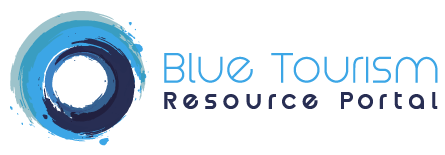World Heritage and Tourism in Changing Climate
This webinar addresses the issue of the climate change and the tourism activities impacts of the World Heritage Sites. The report ‘Destinations at risk, World Heritage & Tourism in a Changing Climate’ provides an overview of the increasing vulnerability of World Heritage sites to climate change impacts and the potential implications for and of global […]
INHERIT Project
INHERIT is a 4 year project that aims to conserve and valorise natural heritage in MED coastal and maritime tourist destinations, alleviating the adverse effects of overcapacity tourism in these areas through the promotion of sustainable tourism. The project will test and deploy a new approach in promoting sustainable tourism that includes measures to protect its […]
CO-EVOLVE
CO-EVOLVE analyzed and promoted the co-evolution of human activities and natural systems in touristic coastal areas in the Mediterranean, allowing for the sustainable development of touristic activities, based on the principles of Integrated Coastal Zone Management and Maritime Spatial Planning. The aim was to demonstrate through pilot actions the feasibility and effectiveness of an ICZM/MSP-based planning process.
The BlueMed Coordination and Support Action
The BlueMed Coordination and Support Action (CSA), funded by the European Commission within the H2020 framework programme, promotes the development and coordination of interdisciplinary reasearch on marine and maritime issues affecting blue economy. The BlueMed consortium is composed of partners from Cyprus, Croatia, France, Greece, Italy, Malta, Portugal, Slovenia and Spain.
Tourism Revenue as a Conservation Tool for Threatened Birds in Protected Areas
Many bird populations worldwide are at risk of extinction, and rely heavily on protected area networks for their continued conservation. Tourism to these areas contributes to conservation by generating revenue for management. Here we quantify the contribution of tourism revenue for bird species in the IUCN Red List, using a simple accounting method. Relevant data […]
USAID Program for the Management of Aquatic Resources and Economic Alternatives
These aquatic resource management toolkits are designed with a “train the trainers” approach in mind. The audience for these toolkits are the individuals and organizations providing the technical support to ensure those communities and entrepreneurs are successful. While these toolkits do not span the entire breadth of the complex tourism industry, they do provide insight […]
Multi-Hazard Risk Management Guide for the Caribbean Tourism Sector
This Multi-Hazard Risk Management Guide for the Caribbean Tourism Sector was designed as a practical tool, addressing all phases of the Disaster Management cycle with a comprehensive and well-articulated treatment of the range of natural and other hazards, which can affect the Caribbean tourism industry. The Guide incorporates climate and disaster risk mitigation and adaptation […]
Toward a Blue Economy: A Promise for Sustainable Growth in the Caribbean
This report attempts to demystify and define the blue economy for Caribbean policy-makers, a new concept being discussed within development circles and emerging as a new development paradigm for the sustainable development of our oceans and seas (Sustainable Development Goal 14) and particularly for the economic growth and development of ocean-facing countries, including Small Island […]
The Potential of the Blue Economy : Increasing Long-term Benefits of the Sustainable Use of Marine Resources for Small Island Developing States and Coastal Least Developed Countries
This report was drafted by a working group of United Nations entities, the World Bank, and other stakeholders to suggest a common understanding of the blue economy; to highlight the importance of such an approach, particularly for small island developing states and coastal least developed countries; to identify some of the key challenges its adoption […]
Social License to Operate and the Blue Economy
This World Ocean Council report is the summary of the outcomes of a workshop on social license implications for the Blue Economy conducted at the Sustainable Ocean Summit in 2017.
